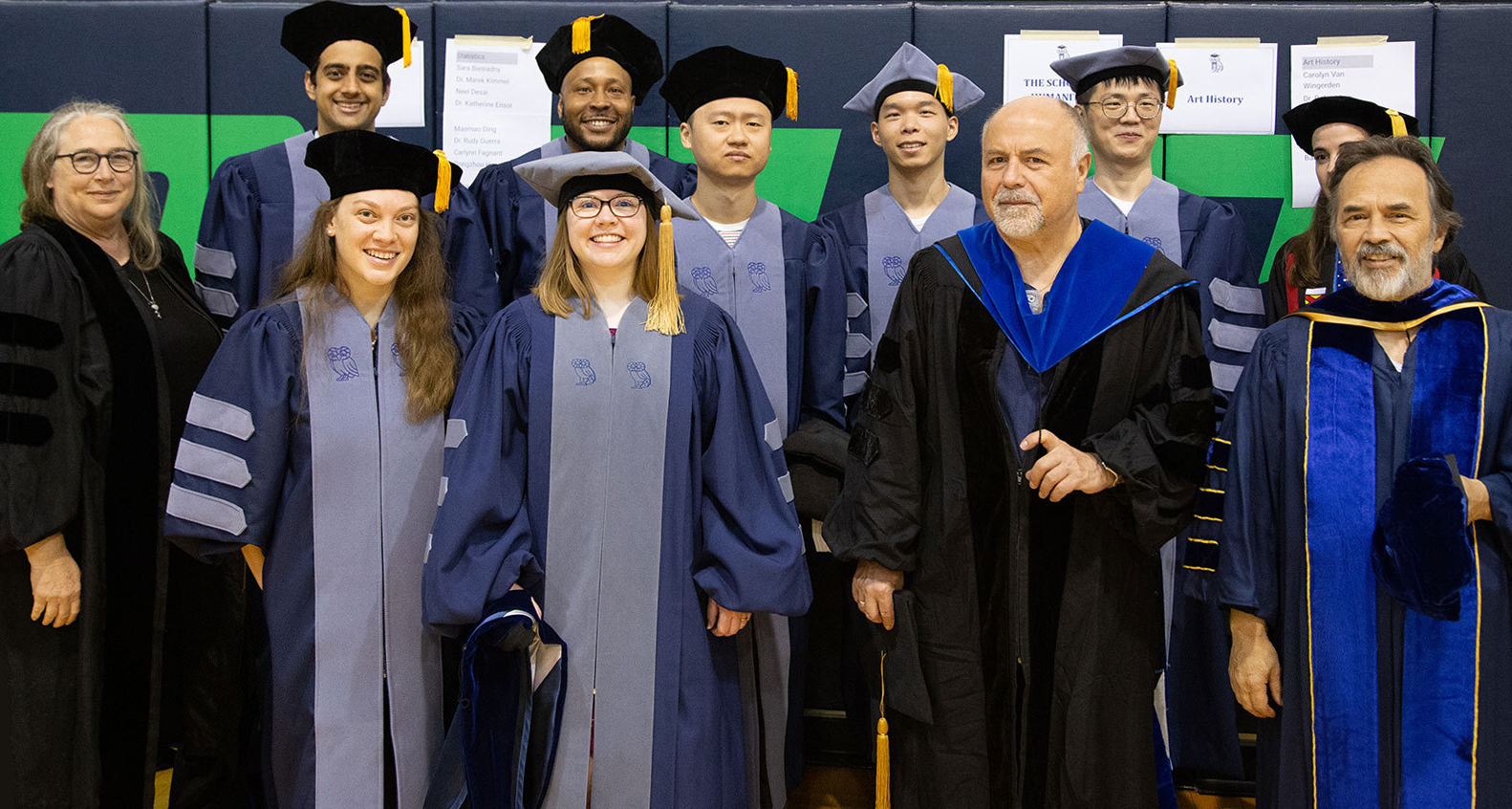I came to the United States in 1997 to pursue a PhD in Computer Science. Armed with a small amount of money and an even smaller English vocabulary, I stepped onto campus, only to be told by the department chair in my first week that my intended PhD advisor had been suspended by the university. Pretending to understand, I rushed back to my apartment to look up the word “suspend.” After grappling with this unexpected turn of events for months, I switched to the master’s program, earned my Master of Computer Science degree, and transferred to another institution, still determined to pursue a PhD.
After nearly two years working with a new advisor, I realized our interests and approaches didn’t align. Discouraged by these experiences, I decided to take one last chance with another advisor. I resolved to give it a year, and if it didn’t work out, I would let go of my PhD aspirations for good. That’s when I met Professor Tandy Warnow, who would become not just my advisor and thesis director, but also my biggest supporter and a lifelong friend.
What makes a great PhD mentor? Above all, it’s someone who sees the individual behind the student before prioritizing their academic journey. A student is someone’s child, sibling, friend, and sometimes even a spouse or parent. These relationships bring both joy and challenges, forming a significant part of the student’s lived experience. International students, in particular, face unique vulnerabilities—far from home, often adjusting to a new culture, many learning English for the first time, all while navigating strict immigration regulations.
The PhD journey is often fraught with uncertainties, whether it’s developing a research proposal, conducting experiments, or preparing for job interviews. Having a supportive mentor can make all the difference, providing constructive feedback, encouragement, and the reassurance that comes from experience. This support not only builds students' confidence but also equips them with the skills they need to thrive in their academic and professional pursuits.
A great mentor supports their students, no matter what career paths they choose. While academic positions are prestigious and faculty may feel passionate about these roles, it’s crucial not to impose our aspirations onto students’ choices. Additionally, the career path a student chooses does not dictate the length of their PhD journey; the journey should focus on their development as scholars, rather than being unnecessarily prolonged or shortened.
A great mentor recognizes that each student learns and conducts research differently. When I began my graduate studies, I had little understanding of how research truly functioned. In contrast, many students enter graduate school with extensive research backgrounds. These varied experiences do not dictate a student’s potential for success but do require tailored mentoring approaches.
As a dean, I have the privilege of witnessing firsthand the incredible potential and passion that our PhD students bring to our academic community. These scholars are not just the future of research; they are the very heart of our school’s mission to advance knowledge and drive innovation. However, the journey to a PhD can be daunting, and this is where effective mentoring becomes essential.
As we continue to cultivate a thriving academic community, let us prioritize mentoring as a core component of our mission. Together, we can ensure that our PhD students are not only well-prepared for their future careers but also inspired to make meaningful contributions to society at large. As mentors, let’s strive to ensure our PhD students feel valued and supported.
The Message from the Dean of Engineering and Computing at Rice University is published quarterly during the academic year, and is shared with our students, faculty, staff and friends.

